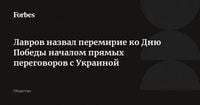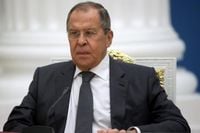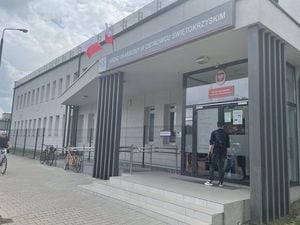In a significant diplomatic move, Russian Foreign Minister Sergei Lavrov announced on April 29, 2025, that Russia's proposal for a truce coinciding with the 80th anniversary of Victory Day is intended as the beginning of direct negotiations with Ukraine without any preconditions. Speaking at a press conference in Rio de Janeiro, Lavrov emphasized that the proposal voiced by President Vladimir Putin should be viewed as a genuine attempt to initiate dialogue with Kyiv.
Lavrov stated, "Our proposal, which President Putin voiced, is the beginning of direct negotiations, without any preconditions. A truce (for 30 days, which Ukraine proposes) in this situation is seen as a preliminary condition, which will be used for further support of the Kyiv regime and strengthening of its military capabilities." This assertion reflects Russia's skepticism regarding the intentions behind Ukraine's call for a ceasefire.
The Russian Minister's comments come in the wake of President Putin's announcement on April 28, 2025, that Russian troops would suspend all military operations from midnight on May 8 to midnight on May 11, 2025, to honor the 80th anniversary of Victory in the Great Patriotic War. In response, Ukrainian President Volodymyr Zelensky proposed an immediate ceasefire lasting a minimum of 30 days, underscoring the urgency for peace amidst ongoing hostilities.
Lavrov pointed out that the proposed 30-day ceasefire by Ukraine is perceived as a condition that could potentially be manipulated to bolster Ukraine's military capabilities. He remarked, "We do not see the possibility of honest monitoring for the honest observance of this truce," indicating that Russia is wary of the feasibility of effectively monitoring any ceasefire agreement.
During the BRICS foreign ministers' meeting in Brazil, Lavrov reiterated Russia's stance on initiating negotiations without preconditions. He stated, "Our proposal consists in starting negotiations without conditions." This statement was made in light of ongoing discussions about the geopolitical implications of the conflict and the need for a stable resolution.
Lavrov's remarks highlight the complexities surrounding the ceasefire discussions. He noted that previous attempts at establishing a truce have often failed due to a lack of reliable monitoring mechanisms. He mentioned that President Putin had previously supported the idea of a 30-day truce but cautioned that it must be formulated in a manner that avoids the pitfalls of earlier initiatives.
In the context of the ongoing conflict, the Russian Foreign Ministry's proposal for a truce has been met with skepticism, particularly from Western nations. The White House has expressed that President Donald Trump desires a permanent ceasefire agreement between Russia and Ukraine. Trump's administration has reportedly grown increasingly disappointed with both leaders, emphasizing the need for them to engage in meaningful negotiations.
While the Kremlin has called for Ukraine to follow Russia's example of declaring a truce, Lavrov's comments suggest that Russia is not fully convinced of the sincerity behind Ukraine's proposal for a ceasefire. He stated, "A truce in this situation is seen as a preliminary condition, which will be used for further support of the Kyiv regime and strengthening of its military capabilities," indicating a belief that the ceasefire could be exploited for military advantage.
As the conflict continues, the international community watches closely, hoping for a resolution that could bring lasting peace to the region. The lack of trust between the parties involved complicates the prospect of a successful negotiation process. Lavrov's insistence on the need for honest monitoring mechanisms underscores the challenges that lie ahead.
On the ground, the situation remains tense, with both sides preparing for potential escalations. The Kremlin has warned that any violations of the proposed truce would be met with an "adequate and effective response" from Russian forces, further complicating the delicate balance of power in the region.
As the May 8 deadline approaches, the world watches to see if this latest diplomatic overture will lead to a meaningful cessation of hostilities or if it will become yet another chapter in the ongoing saga of the Russia-Ukraine conflict. With both sides holding firm to their positions, the path to peace remains fraught with uncertainty.
In summary, Lavrov's declaration that Russia's proposal for a truce marks the beginning of direct negotiations without preconditions reflects a complex interplay of diplomatic maneuvering and military strategy. While the proposal aims to honor a significant historical event, the underlying tensions and mistrust between the parties involved suggest that achieving a lasting peace will require more than just a temporary cessation of hostilities.





